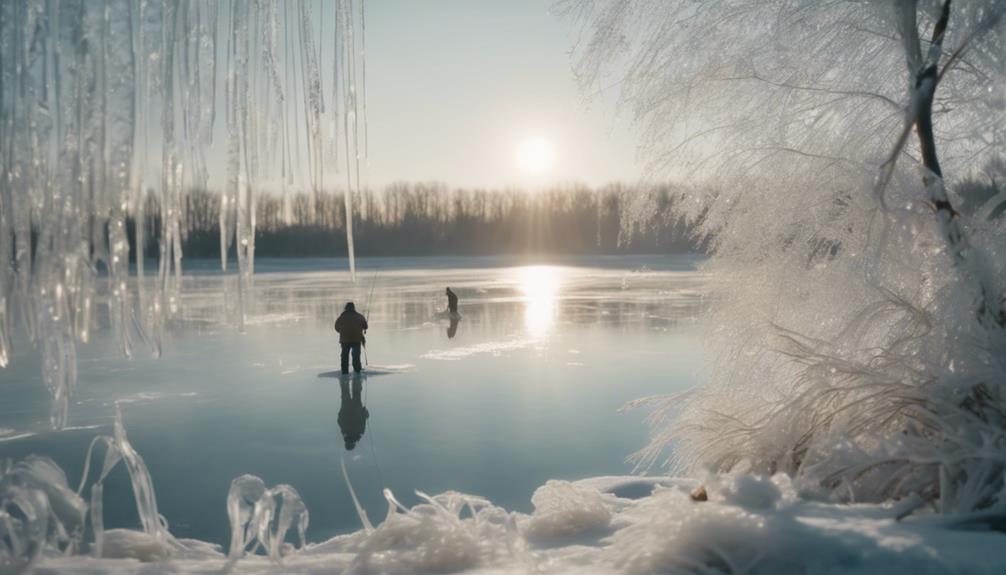Fishing is a beloved pastime for many, offering moments of peace and a chance to connect with nature. But before you head out on your next fishing adventure, it’s crucial to understand the regulations surrounding fishing, particularly the question: do you need a fishing license to catch and release? This blog post will delve into the various aspects of fishing licenses, catch and release practices, and the regulations that govern them.
What Is a Fishing License and Why Is It Important?
A fishing license is a legal document that grants individuals permission to fish in designated waters. Each state or province may have its own regulations regarding fishing licenses. These licenses serve multiple purposes: they help regulate fish populations, fund conservation efforts, and promote responsible fishing practices. When you ask, “do you need a fishing license to catch and release?” the answer can vary based on location. In most places, a fishing license is required for all forms of fishing, including catch and release.
Understanding Catch and Release Fishing
Catch and release fishing is a practice where anglers catch fish but release them back into the water instead of keeping them. This approach aims to minimize the impact on fish populations and promote sustainable fishing practices. Many fishing enthusiasts participate in catch and release to enjoy the thrill of fishing without harming the ecosystem. However, even if you plan to release the fish, understanding local regulations is crucial. This leads us back to the question of whether a fishing license is necessary for catch and release.
State-Specific Regulations on Fishing Licenses
Fishing regulations can vary significantly from one state to another. Some states require a fishing license for all fishing activities, while others may have exemptions for certain groups, such as children or seniors. Additionally, some states may have specific rules regarding catch and release practices, including the types of gear allowed and the seasons when catch and release is permitted. Therefore, it’s essential to check your local wildlife agency’s regulations before heading out to fish. This ensures you’re complying with the law and practicing responsible fishing.
The Consequences of Fishing Without a License
Fishing without a license can lead to serious consequences, including hefty fines and a tarnished reputation as an angler. Authorities take fishing regulations seriously, as they are vital for maintaining healthy fish populations and ecosystems. If caught fishing without a license, you may face penalties ranging from fines to the confiscation of your fishing gear. Therefore, it is always best to be informed and prepared. So, before you cast your line, make sure you understand the necessity of a fishing license—even for catch and release.
Benefits of Obtaining a Fishing License
Securing a fishing license offers numerous benefits beyond just legality. For starters, fishing licenses often contribute to conservation efforts, helping to maintain and restore aquatic habitats. Additionally, licensed anglers typically gain access to exclusive fishing spots, special events, and tournaments. By obtaining a fishing license, you’re not only ensuring that you comply with regulations but also supporting the broader goal of sustainable fishing practices. This way, you can enjoy catch and release fishing while contributing to the health of our natural resources.
The Role of Conservation in Catch and Release Fishing
Conservation plays a pivotal role in the practice of catch and release fishing. Many fish species are vulnerable to overfishing, and catch and release practices help mitigate this issue by allowing fish to return to their habitats to reproduce and grow. However, catch and release must be done responsibly, using methods that minimize stress and injury to the fish. This includes using barbless hooks, minimizing handling time, and ensuring that the fish are released in good condition. Understanding these conservation principles enhances your fishing experience while promoting ecological balance.
Tips for Responsible Catch and Release Fishing
If you decide to engage in catch and release fishing, there are several best practices to follow to ensure the fish’s survival. First, use appropriate gear designed for the type of fish you are targeting. Using a net can help reduce stress and injury to the fish. Second, handle the fish as little as possible; wet your hands before touching them to minimize damage to their protective slime. Lastly, release the fish gently back into the water, preferably at the depth they were caught to avoid barotrauma. By following these tips, you can enhance the chances of the fish’s survival while enjoying your fishing experience.
Conclusion: Know the Regulations and Enjoy Your Fishing Experience
In conclusion, whether you need a fishing license to catch and release depends largely on your local regulations. It’s essential to research and understand the laws in your area to ensure you are fishing legally and responsibly. Obtaining a fishing license not only supports conservation efforts but also enhances your fishing experience by providing access to exclusive spots and events. Remember, responsible catch and release practices play a crucial role in sustaining fish populations and ecosystems. So, gear up, get your license, and enjoy the great outdoors while contributing to the health of our waterways. Happy fishing!
